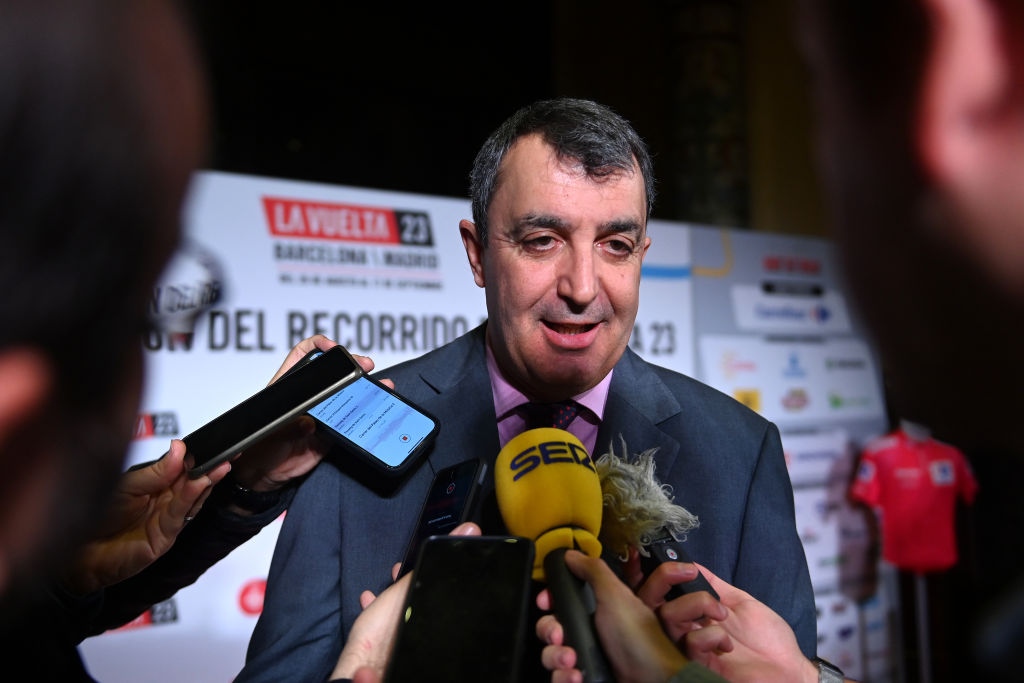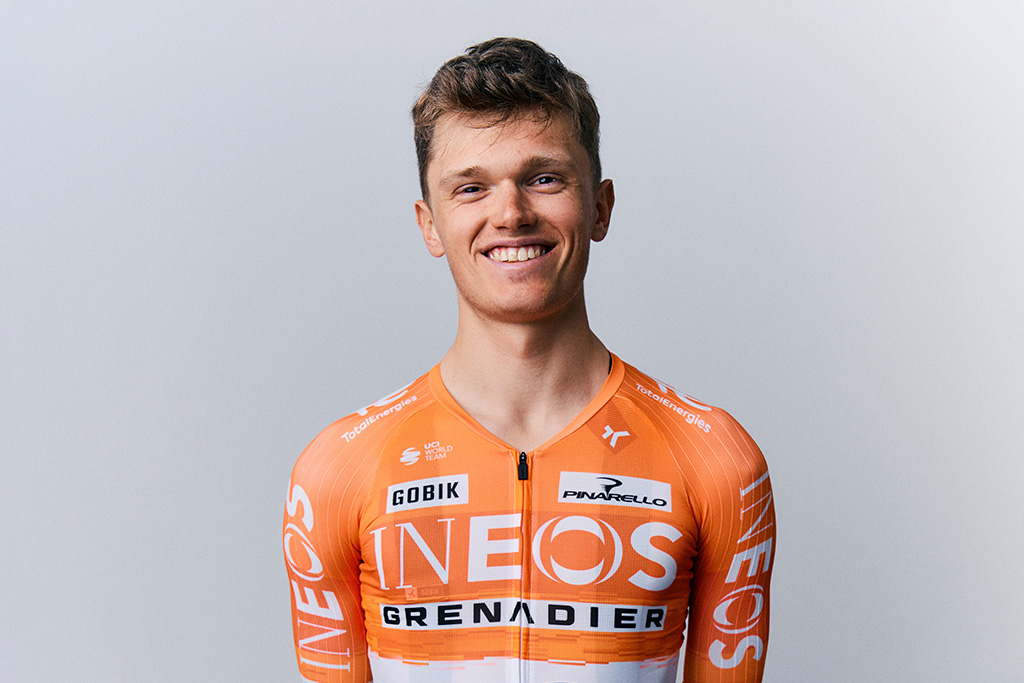Vuelta a España boss defends stage 2 semi-neutralisation and stage 1 TTT racing conditions
Stage 1 affected by ‘unexpected events which surprised us all’, says course director Javier Guilén

The latest race content, interviews, features, reviews and expert buying guides, direct to your inbox!
You are now subscribed
Your newsletter sign-up was successful
Vuelta a España director Javier Guillén has defended both the partial suspension of the stage 2 finale on Sunday and the way the organisation handled the challenging conditions in Saturday’s crash-blighted team time trial.
Numerous riders fell heavily on Saturday’s evening TTT as the rain and dark encroached on the city centre course in Barcelona, sparking a wave of discontent in the peloton that rolled through to the start of stage 2.
After heavy rain fell in Catalunya overnight and through the first part of Sunday, riders expressed strong criticism that their voices were going unheard by the race organisation - “we’re pawns in their game,” said Geraint Thomas (Ineos Grenadiers).
Further threats from the peloton also emerged about holding an unspoken truce for the final hilly, technical, segment of stage 2, running through Barcelona’s Montjuic Park.
Given the ongoing difficulties, the Vuelta a España finally opted to take GC times at nine kilometres from the line on stage 2. All of the main overall contenders duly sat up at the foot of Montjuic Park and rolled across the finish minutes after Andreas Krön (Lotto-Dstny) had taken the win.
As he looked back on a fraught weekend where the importance of any actual racing in the Vuelta shrank to the bare minimum possible, Guillèn told Spanish TV that the decision to partially suspend stage 2 had been due to the bad weather.
“There’s a formula for these circumstances, the extreme weather protocol, which we used, and this morning the petition came through to suspend part of the course because of the very heavy rain and its effects,” Guillén said.
The latest race content, interviews, features, reviews and expert buying guides, direct to your inbox!
“We also weighed up the fact that this is the first part of the Vuelta and when it rains on terrain where it’s been as dry as it has been in Catalunya for the last few months, then the risk level increases.
“We weighed up all our options and we reached a unanimous agreement to take the times on GC with 9 kilometres to go.”
Guillén claimed that in the meeting which decided the suspension, the riders had been the main actors. He added that the important thing was “to save the day. It was very important for the race to get to Barcelona to pay homage to the magnificent public.”
Asked if he felt that such a suspension could be repeated in the future, Guillén said that was impossible to predict. However, he insisted that “if we eliminate everything from a race, then we all lose.”
“Safety is the key matter, no other criteria matters. We had to take a decision and that was the decision we took.”
Speaking earlier in the day, Guilén responded to widespread rider and media criticisms of the opening TTT course, saying that the rain and darkness that enveloped the last part of the stage were “unexpected circumstances that surprised us all”.
Speaking as yet more rain - the first in two months in Catalunya - teemed down on the Vuelta at the stage 2 start, the race director said that the “darkness was due to a storm which the weather forecast predicted would be much smaller.”
Guillén pointed out that the race schedule had been brought forward slightly - by around 20 minutes - earlier in the weekend. Three weather forecasts consulted by the Vuelta organisation had confirmed there would be rain, but they differed by several hours.
“We knew that there would be rain, but not that nature would have a blackout,” he insisted. “I can understand the riders’ criticisms in the sense that we were expecting something different. We are the first in line to hope things play out differently.
“We controlled what we could and what happened yesterday was impossible to control.”
While Guillèn blamed the extremely difficult race conditions on poor weather forecasts leaving the organisation unable to react in time, he also pointed out that in a city as big as Barcelona, adapting race schedules at the last minute had colossal implications for millions of residents and could not, therefore, be done lightly.
Other further factors also contributed to the near-debacle. According to reports in the Catalan newspaper El Periódico on Sunday, Barcelona’s municipal authorities were unable to bring forward the time the city’s streetlights were due to be lit, at 20:45 local time, despite the dark.
Citing unnamed sources within Barcelona town hall, El Periodico reported, pre-set timers and light sensors are usually activated once evening darkness begins to set into a point where visibility is seriously reduced, as was the case on Saturday evening during the TTT. Town hall engineers tried to change the lighting times to react to the additional level of darkness, but for technical reasons, this was not possible.
The biggest victim of the exceptionally difficult circumstances, Laurens de Plus (Ineos Grenadiers), who abandoned during the TTT, was confirmed on Sunday morning to have suffered a broken hip. Other teams like Jayco-AIUIa, who had two separate big crashes on the TTT, ended up thanking their lucky stars that the damage had not been more serious.
“For the moment everybody is not looking too bad,” sports director Tristan Hoffman told Cyclingnews at the stage 2 start, “many riders lost some skin, but nothing was broken.”
The team’s leader Eddie Dunbar was fortunate enough not to hurt his shoulder, which he dislocated in the Tour de Pologne, but the Irishman then hurt one of his ankles in the second crash, Hoffman said.
“We went down like dominoes, which is shit, but we are not the only ones. At least nobody has to go home.”
As for whether the race organisation should have changed the TTT timetable, Hoffman said. “It’s always easy to say that with hindsight.”
“They should have started early so the guys didn’t finish in the dark and then the clouds made the darkness earlier, too. But most of the guys were racing in the same conditions.”
Alasdair Fotheringham has been reporting on cycling since 1991. He has covered every Tour de France since 1992 bar one, as well as numerous other bike races of all shapes and sizes, ranging from the Olympic Games in 2008 to the now sadly defunct Subida a Urkiola hill climb in Spain. As well as working for Cyclingnews, he has also written for The Independent, The Guardian, ProCycling, The Express and Reuters.

